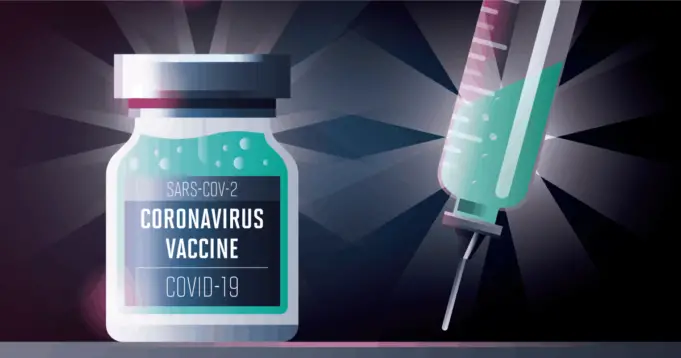The COVID-19 vaccine was developed faster than any other vaccine in history. This quick speed has made some nervous to receive it.
Previously, the fastest vaccines developed were the mumps vaccine, which took 4 years, and the measles vaccine, which took 3. Typically, vaccines take 10-15 years to develop.
There were a few factors that contributed to the fast development of the COVID-19 vaccine. Researchers around the world worked with one another by sharing data, and there was previous research into other coronaviruses that made the process easier.
Also, the mRNA vaccines were made with readily available materials. Governments around the world aided scientists by fast-tracking clinical trials and vaccine approvals.
Even though the vaccines were developed at a fast rate, the fast-tracked elements did not affect the safety of the vaccines. These fast-tracked elements did not affect the accuracy of trial results.
Every vaccine was put through standard clinical trials, which included laboratory trials and three phases of clinical trials to determine the safety and effectiveness. Of all the potential coronavirus vaccines put through clinical trials, only 7% succeeded in preclinical studies.
Many myths are still circulating about coronavirus vaccines. You can not get the coronavirus from the vaccine because they don’t contain any active viral material.
The vaccine does not weaken immune systems, cause autism, or damage children or babies. People assume that you don’t need to get a vaccine if you have already been infected, but this is not the case.
People should get vaccinated to prevent reinfection. Also, the vaccine will not end masks and social distancing immediately. Full protection against COVID-19 may not fully develop until weeks after the second shot, and vaccinated people may still be able to act as asymptomatic spreaders.
Vaccines do protect against COVID-19 and protect others by building herd immunity. Researching multiple vaccines at once has created a quick solution.
Currently, Pfizer and Moderna are the two authorized vaccines available in the United States. Janssen, Novavax, and AstraZeneca are three vaccines that are currently in the final phase of clinical trials. Continuing trials will ensure constant improvements.
The new vaccines in the final phase of clinical trials may provide unique benefits if they are approved. The Janssen vaccine is administered in a single dose.
Novavax may produce a stronger immune response, and AstraZeneca can be stored in a refrigerator. The question is: who gets the vaccine first?
The CDC recommends that healthcare workers and long-term care residents receive vaccines first. Next, frontline essential workers and people over the age of 75 are eligible to receive the vaccine, followed by the rest of the essential worker population and younger people.
Vaccines will be distributed at many different locations, including commercial pharmacies, healthcare facilities, local health departments, community centers, large chain grocery stores, schools, and nursing homes.
Individual states can adjust eligibility guidelines as they see fit, so it’s important to stay updated by your local health department and state press conferences to see when you are eligible to receive the vaccine.
Fight misinformation. Spread just the facts about the COVID vaccine.













